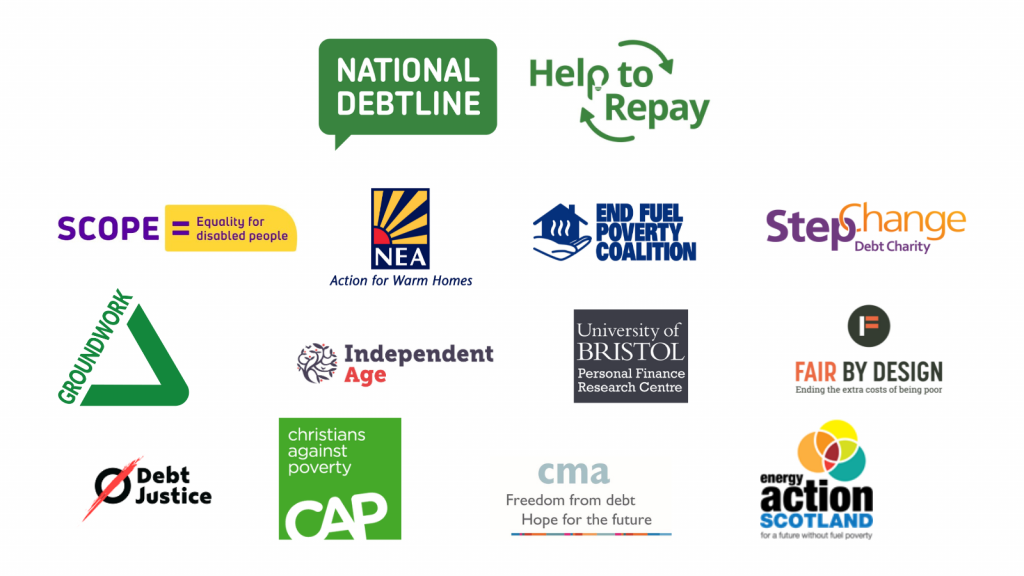What did the Autumn Statement deliver for people in debt?
Grace Brownfield explores the what the Chancellor's Statement meant for our clients at National Debtline and Business Debtline
Posted November 23, 2023
When the Chancellor rose to his feet to deliver his Autumn Statement, many of us were watching closely to see what measures, if any, might support people in financial difficulty.
Positive news for renters
Early on in the speech, there was some positive news with the announcement that the freeze on Local Housing Allowance (LHA) rates would end, and rates restored to cover the cheapest third (30th percentile) of local market rents in April 2024. It is estimated that this will give 1.6m people an additional £800 to help with their rent costs.
The freeze – in place since April 2020, despite rents rising to their highest recorded levels – has led to a significant erosion of support for private renters on the lowest incomes, fuelling rent arrears and other financial difficulties. Research by the IFS found that just 5% of new private rental properties on Zoopla were now covered by LHA rates and are therefore affordable to people receiving Housing Benefit or Universal Credit, a drop from 23% since before the freeze. With millions of renters already hit by increasing rents, the end of the freeze cannot come soon enough.
A sigh of relief on benefit uprating
The announcement of the end of the LHA freeze was swiftly followed by confirmation that working age benefits will be uprated – as normal – by the September inflation figure of 6.7%, rather than the lower October figure of 4.6%, as had been mooted. The latter would have left people on the lowest incomes out of pocket by around £3 billion so it is right that the Government has stuck to the usual process of uprating based on September inflation figures.
Welcome steps for the self-employed
At Business Debtline, we are seeing just how challenging things are for self-employed people and small business owners right now.
Many are facing a double hit from the cost of living, seeing rises in both their household bills and business costs. Our research earlier this year showed a third (34%) of self-employed people we spoke to had seen their profits fall since March 2022, putting significant pressure on their finances.

While the headline-grabbing National Insurance cut for employees will largely be cancelled out by the impact of frozen allowances, the changes to National Insurance rates for people who are self-employed could provide vital financial help a group so often over-looked.
There were also welcome announcements on business rates and tackling late payments, something which often exacerbates, and in some cases causes, financial difficulty for small businesses.
Absence of help on energy bills
Ofgem’s announcement that the energy price cap will rise to £1,928 from January is a reminder of the challenges facing many people throughout winter and into 2024.
There was no extension granted to the Household Support Fund, which will end in March 2024, and with no further energy support during the coldest months, it is going to be as tough – if not tougher – for millions of people this winter. Our shows more than one in five UK adults (22%) have cut back on food and other essentials just to keep up with energy bills (an estimated 11.6 million people). 4.7 million (9%) had sold personal possessions, with 4% turning to high-cost credit. Higher bills will only heap more pressure onto people.
The price cap increase also comes as many people are already struggling with energy debt. 12% of UK adults are currently behind on their energy bills, and a quarter (24%) are unable to repay. With energy debt at a record high, it is disappointing not to see any further help with energy costs in the Autumn Statement.
With bills set to rise again, calls for energy bill support measures like those proposed in our Help to Repay scheme, which has the backing of 17 organisations, will only intensify.

A universal Priority Services Register
One announcement that was very welcome but easy to miss was the call from Government for a universal Priority Services Register (PSR) for vulnerable customers. The plans involve energy, water and telecoms companies sharing data so that the most vulnerable customers only need to disclose information once. Our Vulnerability Lead Consultant, Chris Fitch has shared his reaction to these plans with Utility Week.
Trapped in debt
While there were some welcome measures on household finances, the lack of targeted support for people in debt and facing financial hardship was stark. With the exception of a brief (but welcome) mention of improved funding for HMRC to segment people with tax debts to better identify those in financial difficulty, there were no mentions of supporting people out of debt. As high costs continue to bear down on households, continuing to make the case for improved debt support will be more important than ever.
Grace is the Money Advice Trust’s Senior Influencing Manager. She previously worked in the policy team at StepChange Debt Charity. Before that she worked on issues related to the financial impact of cancer at Macmillan Cancer Support and NSPCC. View all posts from Grace Brownfield.